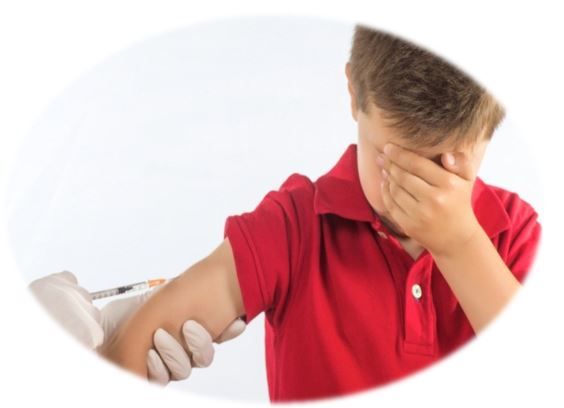- Clinical Technology
- Adult Immunization
- Hepatology
- Pediatric Immunization
- Screening
- Psychiatry
- Allergy
- Women's Health
- Cardiology
- Pediatrics
- Dermatology
- Endocrinology
- Pain Management
- Gastroenterology
- Infectious Disease
- Obesity Medicine
- Rheumatology
- Nephrology
- Neurology
- Pulmonology
Nonmedical Exemptions for Vaccines for Children Should be Eliminated: American Academy of Pediatrics
The AAP acknowledges challenges for families but emphasizes mandatory vaccination as crucial for safe school environments.
States should eliminate all religious and ethical exemptions for vaccines if children want to attend school, according to the American Academy of Pediatrics (AAP).1
Vaccine skeptics slammed AAP’s policy recommendation as an overreach that stifles individual freedom and parental authority over their children.
©Luiscar/stock.adobe.com

A social media storm erupted on X, formerly Twitter, after AAP on July 28 published its new policy statement, “Medical vs Nonmedical Immunization Exemptions for Child Care and School Attendance.” The statement published in Pediatrics listed co-authors and AAP’s Committees on Practice and Ambulatory Medicine, Infectious Diseases, State Government Affairs, and School Health.1
All states and the District of Columbia have processes to allow vaccine exemptions if youth have medical reasons, the policy statement said. Most also have “a heterogeneous collection” of rules and laws allowing nonmedical reasons.
“The AAP advocates for the elimination of nonmedical exemptions from immunizations as contrary to optimal individual and public health,” the policy statement said.
Opposing Religious Freedom?
Response was strong, with so many replies and reposts that the AAP began trending on X. Commenters suggested AAP receives funding from the US Health and Human Services Department, but that should stop if AAP won’t respect parental authority and freedom of religion. Some said the policy was tyrannical, some called for AAP to disband, while others suggested the Academy was under control of Big Pharma, the vaccine manufacturers.
The Defender, the online publication of the organization Children’s Health Defense, published “American Academy of Pediatrics Wants to Shut Down Religious Vaccine Exemptions,” with comments rebutting AAP. The organization was founded by Health and Human Services Secretary Robert F. Kennedy, Jr.
“The AAP’s statement calling for an end to religious exemptions to immunization ignores constitutionally protected rights regarding religious freedom and potentially is in violation of other laws as well,” Children’s Health Defense attorney Kim Mack Rosenberg said in that article. “AAP blatantly suggests that schools discriminate against families with faith-based reasons to not take some or all vaccines.
“To claim otherwise is to play word games — just as AAP suggests that families are not forced to take vaccines that conflict with their religious beliefs but instead that families simply must choose, in those instances, between attending school and staying true to their religious values.”
Vaccine Success
“Childhood immunization is one of the greatest accomplishments of modern medicine,” the AAP statement said. Based data analysis and modeling, childhood vaccines are estimated to have prevented approximately 500 million cases of illness, 32 million hospitalizations, and 1.1 million deaths. That saves an estimated $540 billion in direct costs and $2.7 trillion in societal costs, based on the cohort of children born from 1994 to 2003.
A relatively small proportion of children may have medical conditions that preclude immunization. They still benefit from other children being inoculated due to the overall decrease in the spread of illness and infections. Maintaining that protection requires a population immunization rate of at least 95% to stop highly contagious diseases such as pertussis and measles, according to AAP.
Currently, 5 states — California, Connecticut, Maine, New York and West Virginia — have laws that accept only medical exemptions from vaccinations. Among the states, 45 allow religious beliefs to be the basis of exemption, and 15 allow “personal belief,” “philosophical,” or “conscientious objection” exemptions. There is no standardized process granting personal or philosophical exemptions.
The nonmedical exemptions add up. For the 2022-2023 school year, the nation had a 3% vaccine exemption rate, according to the figures cited by AAP.
Religious Beliefs
None of the major world religious traditions have scriptural or doctrinal prohibitions on vaccination, according to AAP. Some religious leaders have suggested a moral obligation to seek vaccination as an important way to protect oneself and neighbors.
Religious expression displays “the richness of human diversity,” and state lawmakers rightly hesitate to interfere with exercise of religion.
“However, in practice, nonmedical exceptions based on religious belief can substantially limit the public health value of vaccine requirements for school attendance,” stated the AAP policy. “There is no practicable way for schools or other involved community partners to distinguish fairly among religious or other nonmedical claims. State-level policies that differentiate among these types of claims serve only to introduce opportunities for uneven application, which in turn leads inevitably to disparities in immunization coverage and schools that are less safe.”
Legal, Ethical Justifications
AAP included legal and ethical justifications, noting that legal challenges to state laws rarely are successful, but continue to be filed. Ethically, the state must balance the protection of school communities with the protection of a family’s other interests, while respecting parental authority, the statement said.
Mandating vaccines would have a cost, not least the benefit of going to school with other children. Parents also rely on school for meals and supervision of children during the workday.
“The AAP acknowledges the challenges that such a policy can create for some families,” the policy statement said.
“Even recognizing these difficult trade-offs, making certification of vaccination a condition for in-person school attendance remains the only way to maintain a safe school environment and protect parental authority,” the AAP statement said.
Hackell JM, Brothers K, Gode S, et al. Medical vs nonmedical immunization exemptions for child care and school attendance: policy statement. Pediatrics. 2025;e2025072714. doi:10.1542/peds.2025-072714
